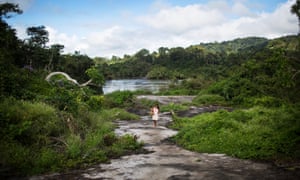
Only five nations hold 70% of the world's staying immaculate wild zones and critical worldwide activity is expected to secure them, as per new research.
Analysts from the University of Queensland (UQ) and the Wildlife Conservation Society (WCS) have out of the blue delivered a worldwide guide that sets out which nations are in charge of nature that is without substantial mechanical movement.
It comes in front of the gathering of gatherings to the Convention on Biological Diversity in Egypt in November where signatory countries are moving in the direction of an arrangement for the assurance of biodiversity past 2020.
Progressives are requiring a commanded focus for wild preservation that will protect the planet's helpless biological systems.
The UQ and WCS ponder, distributed in the diary Nature, recognizes Australia, the US, Brazil, Russia and Canada as the five nations that hold most by far of the world's outstanding wild.
The information prohibits immaculate wild in Antarctica and on the high oceans that isn't contained inside national outskirts.
The paper comes after the group of researchers created information in 2016 that outlined the planet's staying earthbound wild and in 2018 inspected which parts of the world's seas stayed free from the harming effects of human movement.
They found that over 77% of land – barring Antarctica – and 87% of seas had been adjusted by human mediation.
"Two years back we did the principal examination of wild ashore," lead creator James Watson said.
"In this new examination we've made a worldwide guide and crossed it with national fringes to ask: who is capable?"
The scientists say that the planet's outstanding wild can be ensured "just on the off chance that it is perceived inside universal approach structures".
They're requiring a universal focus on that ensures 100% of all staying flawless biological systems.
"It's achievable to have an objective of 100%," Watson said. "Nations should simply prevent industry from going into those spots."
He said the five nations in charge of the majority of the world's outstanding wild needed to give initiative and could act to ensure these territories through enactment or by offering motivating forces to organizations that don't disintegrate nature.
John Robinson, the official VP for worldwide protection at WCS, said wild would just be anchored internationally "if these countries play an influential position".
"As of now we have lost to such an extent. We should get a handle on these chances to anchor the wild before it vanishes everlastingly," he said.
0 comments:
Post a Comment